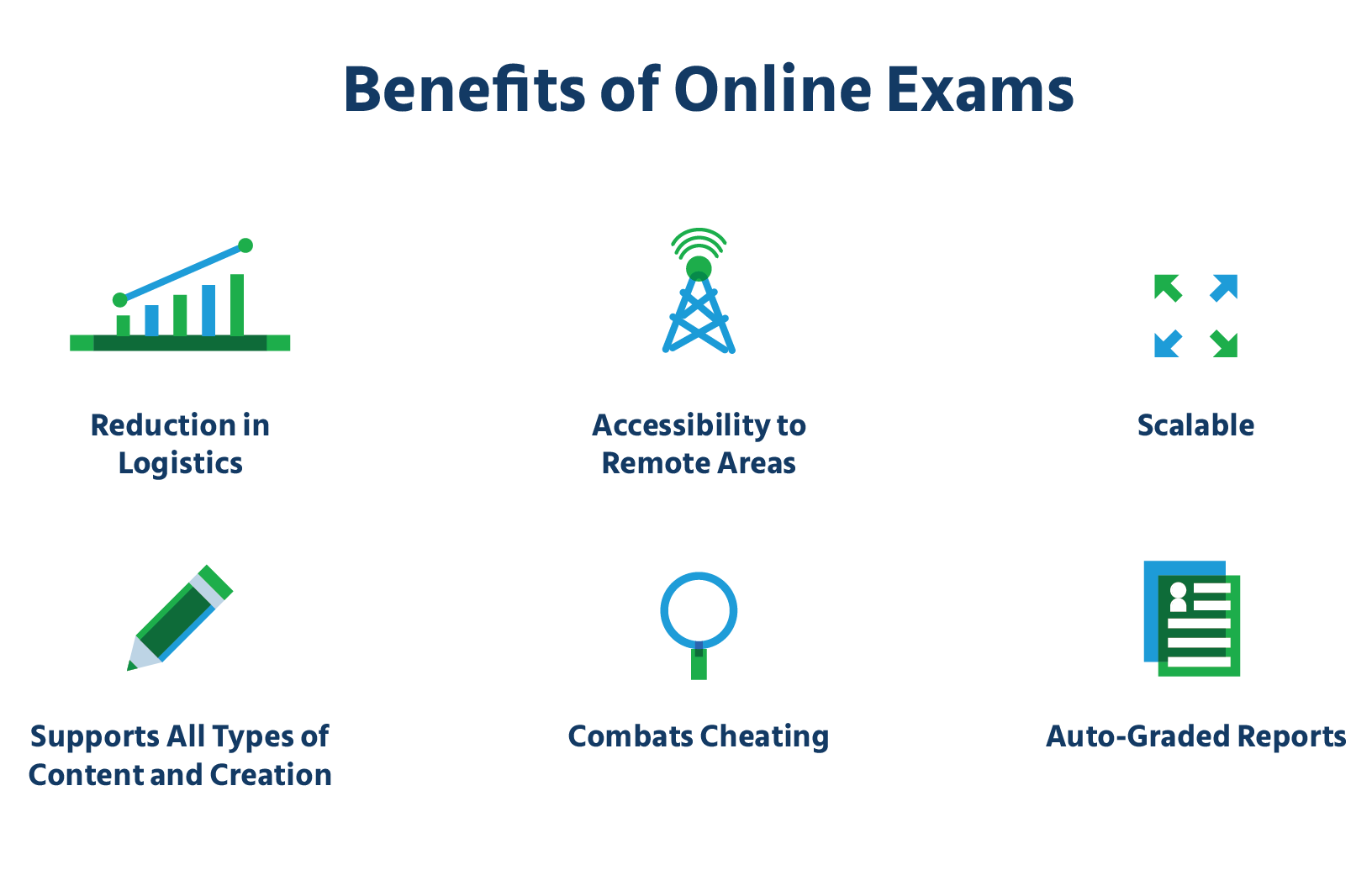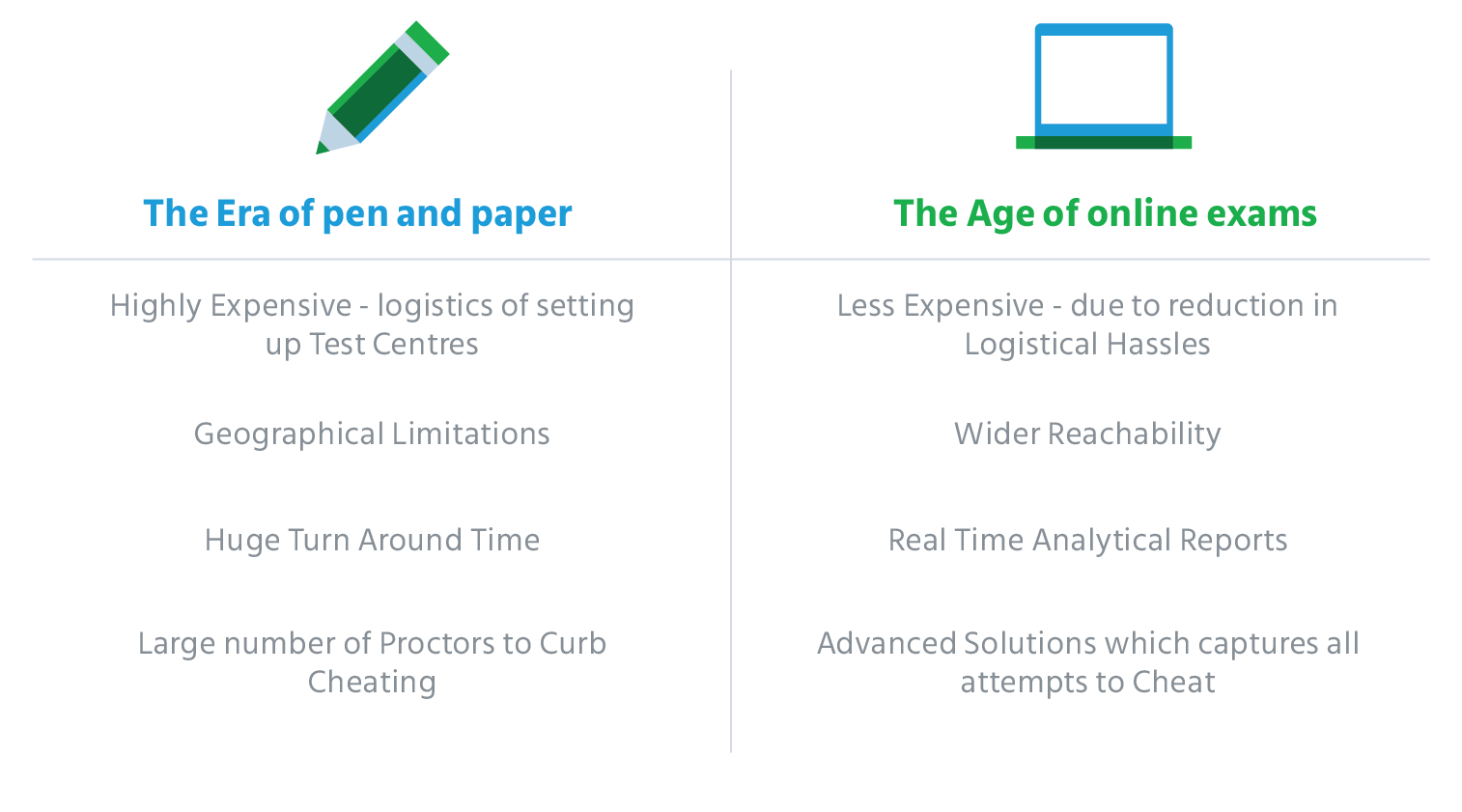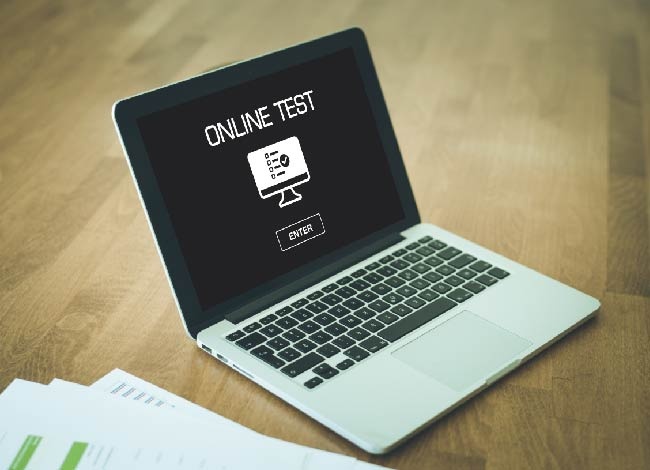We all are yearning for a system that instills our faith in examinations. Quite clearly, we are losing our confidence in the current pen-paper assessments, which appears to be no longer fit. Let us look at why we need online examination systems in the coming times and what we cannot do with conventional methods.
The Entrance Exams Exertion
The more sought after the university, the more applications to screen. Every year, the universities are flooded with applications for various courses; however, filtering them through written tests is a costly affair. In addition to this, a lot of effort gets consumed in shortlisting physical test facilities, added to this is the burden of making arrangements of invigilators, who are supposed to proctor far off test locations.
The institutes face considerable challenges in managing the logistics and financial burden that comes in a package deal with the pen & paper. Disrupting the daily college life of the students to make space for exam centers adds the cherry on top.
The Semester Setback
Imagine the plight of universities during exam days; it’s not only an evaluation of the students’ learnings but also the faculty, who are expected to manage and organize the examinations successfully. Their duties include accommodating hundreds of pupils: converting gyms & auditoriums into exam halls, looking for invigilators to proctor them, checking papers for hours and days to get the result out. Revaluation is another big concern; students often dissatisfied with the checking want their papers to be rechecked, which would be nothing less than an added burden for the teachers, and the authenticity can still be a question mark for the students.
The Pre-Placement Perplexity
Once students are ready to graduate from colleges, but before they do, comes the moment of placement drives, where there is an influx of companies looking to hire people. For hiring what’s required is assessments, and again, the age-old tradition of wasted time, effort, money begins.
The Reluctance
We are satisfied with the old ways of life and resist change. A reluctance to change makes us question the good and find fault with the system. We do all this just to remain in our comfort zone, talking of reluctance, let’s explain the consequences with an example.
We all are aware of Kodak; it was a name that resonated as the world’s largest film manufacturer. Where is it now? Do the millennials even know about it? Why did it lose its spot?
Hit by the wave of digitalization, they weren’t agile enough to adapt to the needs and changing times, they loved their space, but then that’s not how it works. Sometimes change is difficult, but it is necessary to survive.
Kodak failed to keep pace with changing times and technologies. Similarly, most people in the educational sector find it difficult to change, well-adjusted with pen and paper; they fail to understand that the educational industry is reshaping and still resort to the old ways. Satisfied with the old ways of life, the idea of online assessment discomforts them. They fear technical mishaps, cost, and academic dishonesty. It is only when they try new ways that they can unshackle themselves from old ideas.
The Inadequate Auto-Grading
Riding on the horses of fame, coaching institutes have converted themselves into full-grown giants in the education sector. Accredited with integrated learning programs and well-versed teachers, these training institutes have their share of miseries. Reaching out to the untapped talent beyond the geographical limitations, ensuring a wider reach of their assessments and simulators, as well as a quick evaluation of the student’s performance, is what they desire. Caught up in the spiral of inadequate auto-grading, which results in strenuous manual correction of answer sheets, they searched for cost and energy effective solutions.
The Confused Career Guidance
Schools, the second home to children, is the building block of a child’s future. It is here where desires, aspirations, dreams of achieving something are shaped. Teachers play an integral part in guiding kids in what they think is the best for them, telling them the various career opportunities and what they shall pursue in the future. What they lack is a definitive way to measure the ability and personality of the children, which tells them precisely about the behavioral and cognitive competencies.
The Staff Recruitment Ruckus
How do we propose to evaluate our teaching and non-teaching staff? How do we just go by our instincts and grade them? Conducting interviews to choose teachers of different subjects as well as non-teaching staff is very cumbersome. Instead, a defined approach, with some set parameters, will make recruitment easy.
Common to All
Common to all, educational bodies are highly concerned about the logistics incurred due to written examinations. Indulgence of candidates in unethical activities is another point of concern they are desperate to solve. What they want is to reduce the turnaround time, which keeps adding to their cost. But the root cause always remained at the heart of the assessment process, presenting issues with security, transparency, the cost in terms of infrastructure, people, and operations.
The educational landscape in India has undergone quick development, and what is right now, the biggest in the world, enrolls 70 million students. Truth be told, India has created extra space for 40 million more students. That is a lot of assessments and a considerable amount of cash blown.







































Would you like to comment?